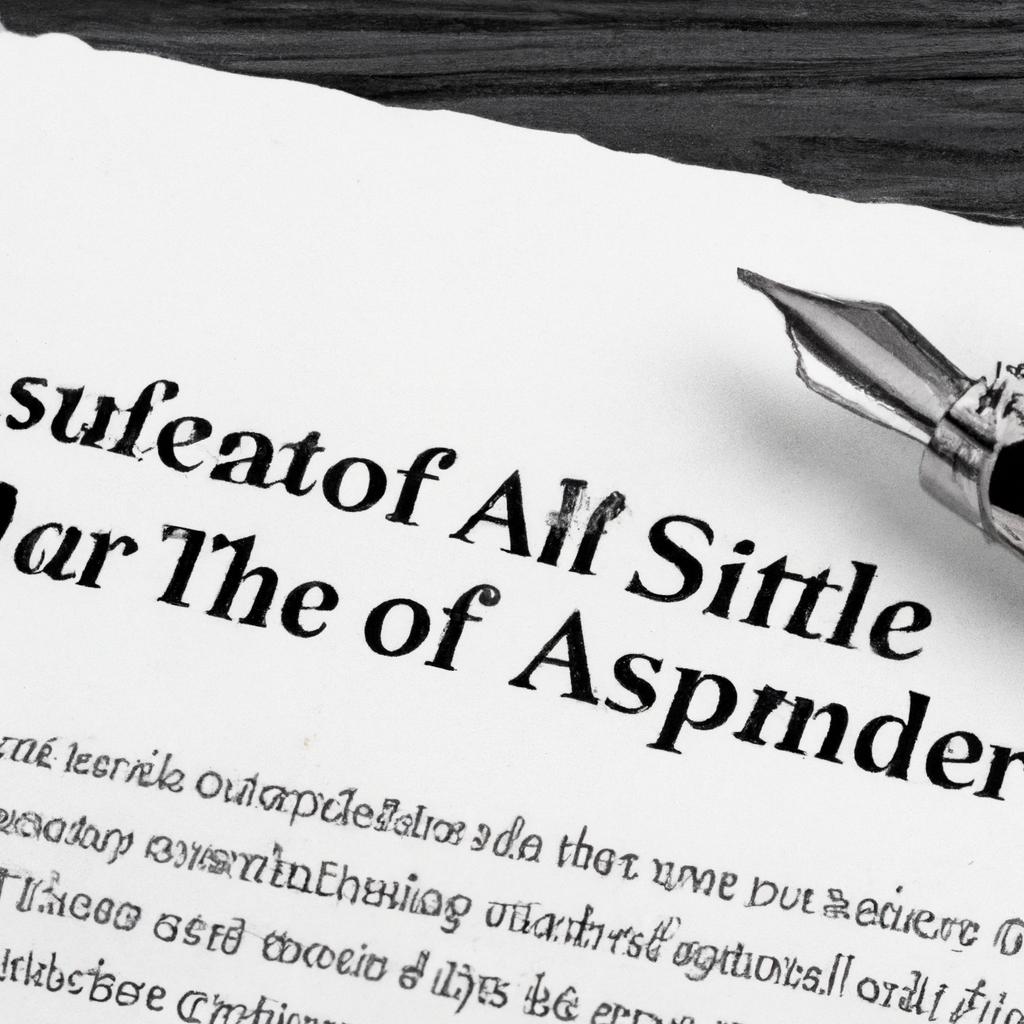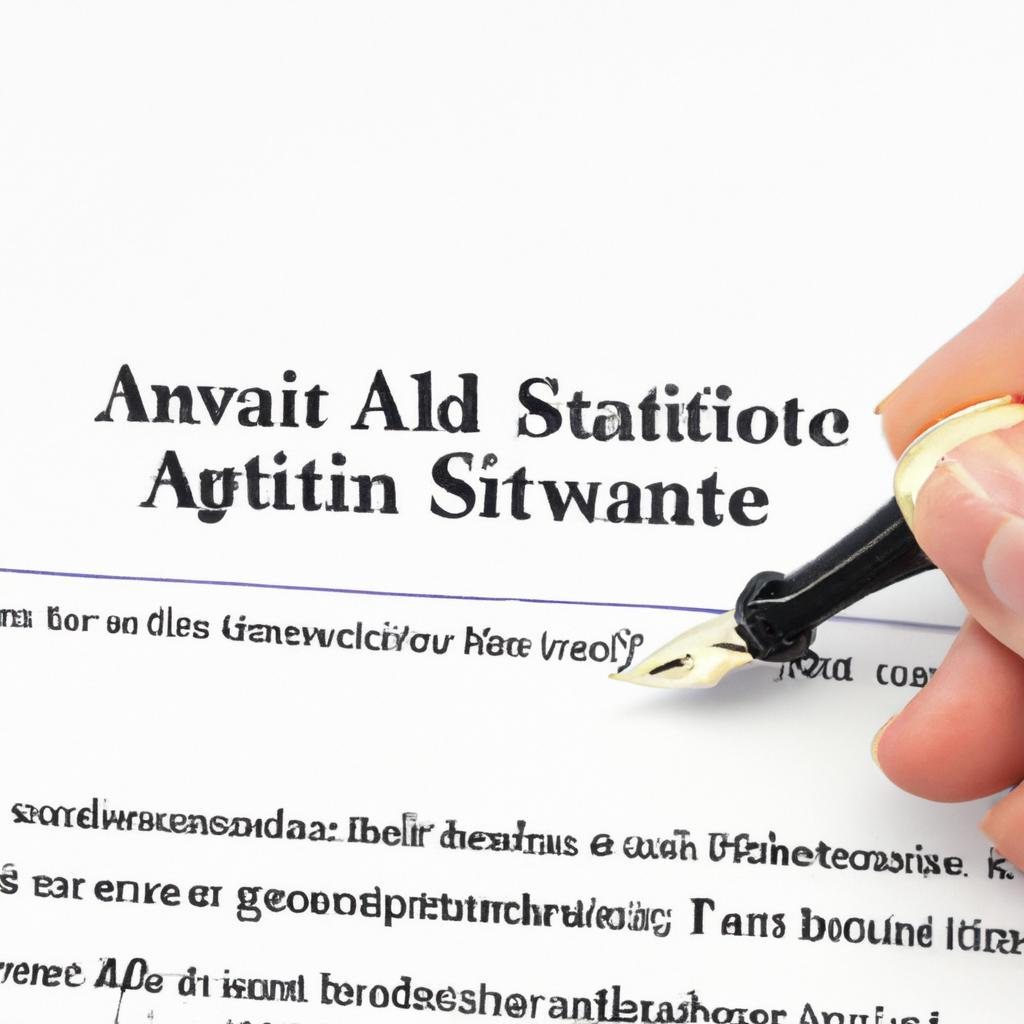In the intricate web of legal documents and procedures that govern estate planning, the small state affidavit emerges as a crucial tool for navigating the complexities of probate proceedings. As seasoned legal practitioners at Morgan Legal Group in the bustling hub of New York City, we understand the importance of this seemingly small document in expediting the distribution of assets in estates of modest value. Join us as we delve into the intricacies of the small state affidavit and unravel its significance in the realm of estate administration.
Understanding the Purpose of a Small State Affidavit
When dealing with legal matters involving a deceased individual’s property, the small state affidavit plays a crucial role in the probate process. This document, also known as a small estate affidavit or small estate declaration, is designed to expedite the transfer of assets to the rightful heirs without the need for a formal probate process. is essential for those navigating the complexities of estate planning and inheritance laws.
One of the primary purposes of a small state affidavit is to provide a streamlined and cost-effective alternative to probate for small estates. By submitting this document to the court, heirs can bypass the lengthy and often expensive probate process, allowing for a quicker distribution of assets. Additionally, a small state affidavit can help heirs avoid the need for legal representation, as it can be completed and filed without the assistance of an attorney. This simplified procedure can be a valuable tool for individuals looking to efficiently settle the estate of a deceased loved one.

Key Components and Requirements of a Small State Affidavit
In a small state affidavit, there are key components that must be included to ensure its validity and effectiveness in legal proceedings. These components serve as requirements that must be met in order for the affidavit to be considered legally binding:
- Identification of the affiant: The affidavit should clearly state the name, address, and contact information of the affiant, who is the individual making the sworn statement.
- Statement of facts: The affiant must provide a detailed and accurate account of the facts pertaining to the matter at hand, ensuring that all relevant information is disclosed.
- Notary signature: A small state affidavit must be signed by a notary public, who serves as a witness to the affiant’s signature and attests to the authenticity of the document.
Additionally, the small state affidavit may also contain supplementary information, such as supporting documentation or exhibits that further substantiate the claims made in the sworn statement. These components work together to create a comprehensive and legally sound affidavit that can be used in various legal proceedings.
| Example Table |
|---|
| Data 1 |
| Data 2 |

Navigating the Process of Executing a Small State Affidavit
When it comes to , there are a few key steps to keep in mind. First and foremost, it is essential to gather all necessary documentation, including the original will, death certificate, and any other relevant paperwork. Once you have collected all the required documents, you can begin the process of completing the small state affidavit.
Next, carefully review the specific requirements for small state affidavits in your jurisdiction. This may include ensuring that all parties involved in the affidavit are properly identified, and that the affidavit is signed in the presence of a notary public. It is crucial to follow these steps diligently to ensure that the small state affidavit is executed correctly and can be used in probate court proceedings. By taking the time to understand and navigate the process of executing a small state affidavit, you can help facilitate the efficient transfer of assets and ensure that the wishes of the deceased are carried out properly.

Recommendations for Utilizing a Small State Affidavit in Estate Planning
When it comes to estate planning, utilizing a small state affidavit can be a valuable tool for streamlining the process and ensuring that your assets are distributed according to your wishes. Here are some recommendations to consider when incorporating a small state affidavit into your estate plan:
- Evaluate your assets: Before moving forward with a small state affidavit, take stock of your assets and determine which ones can be transferred through this document. Typically, small state affidavits are used for smaller estates with less complexity.
- Consult with an attorney: It’s important to seek guidance from an experienced estate planning attorney who can help you navigate the legal requirements of a small state affidavit and ensure that it is properly executed. An attorney can also help you determine if a small state affidavit is the best option for your specific situation.
Q&A
Q: What is a small state affidavit?
A: A small state affidavit is a legal document used to verify someone’s identity when they are unable to obtain proper identification from their state of residence.
Q: When would someone need to use a small state affidavit?
A: Someone may need to use a small state affidavit if they have recently moved to a new state and do not yet have the necessary documents to prove their identity, such as a driver’s license or state ID.
Q: How does a small state affidavit work?
A: A small state affidavit typically requires the individual to provide information such as their name, address, and date of birth, as well as a sworn statement confirming their identity. This document is then notarized to make it legally binding.
Q: Are there any limitations to using a small state affidavit?
A: Yes, there are limitations to using a small state affidavit. It is important to note that not all institutions or organizations may accept a small state affidavit as a valid form of identification. It is always best to check with the specific entity beforehand.
Q: Can a small state affidavit be used indefinitely?
A: No, a small state affidavit is typically meant to be a temporary solution until the individual can obtain proper identification from their state of residence. It is not a long-term substitute for a driver’s license or state ID.
To Wrap It Up
In conclusion, the small state affidavit is a valuable tool for businesses and individuals to streamline the process of obtaining legal documents in states with limited resources. By providing a sworn statement verifying their residency in a designated small state, parties can save time and money in obtaining important records. Whether you’re a business seeking information for a due diligence process or an individual needing a birth certificate for identification purposes, the small state affidavit can help simplify the bureaucratic hurdles that often accompany such requests. Consider utilizing this innovative solution the next time you find yourself navigating the red tape of a small state’s legal system.

